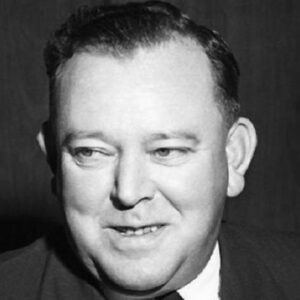Trygve Lie was a politician from Norway, and he was the first Secretary-General of the United Nations. He was also Norway’s foreign minister from 1940 to 1945, when the Norwegian government was in exile in London. Trygve Lie had a hard childhood. His father, a carpenter by trade, left the family when Trygve was a child, and his mother raised him while running her own business. He went to the University of Oslo and got a degree in law. He joined the Labour Party when he was 16, and soon after he graduated, he was made the party’s national secretary. He worked as a lawyer for the Workers’ National Trade Union for a number of years and then joined the parliament. He was Minister of Justice, Minister of Trade, and Minister of Supplies before he was named Foreign Minister of the Norwegian government-in-exile after Germany invaded the country during the Second World War. After the Second World War ended, he became the first secretary general of the United Nations. During his six-year term, he dealt with a number of crises in different parts of the world. After his time at the UN was over, he went back to running for office in Norway.
Early years and childhood
Trygve Lie was born on July 16, 1896, in Kristina, Norway, which is now called Oslo. His parents were Martin Lie and Hulda. His father worked as a carpenter, and his mother ran a cage and boarding house. She was his sister.
His father left the family and moved to the United States in 1902. His mother raised him and his sister all by herself.
In 1916, when he was still in his teens, he joined the Labour Party. In 1919, he got a degree in law from the University of Oslo. Soon after he graduated, he was named the national secretary of the Labour Party.
From 1919 to 1921, he was the head editor of a Norwegian Labour Party magazine called “Det 20de Aarhundre” (The 20th Century).
Trygve Lie’s Career
TrygveLie started working as a lawyer for the Workers’ National Trade Union in 1922. He did this job until 1935.
In 1922, the Aker municipality council put him on its executive committee. He was in charge of this job until 1931.
When the Labour Party won the election in Norway in 1935, Lie was named Minister of Justice in the government led by Prime Minister Johan Nygaardsvold.
In 1937, he was elected from Akershus and became a member of the Norwegian Parliament.
In 1939, he was named Minister of Trade, but he only did that job for four months. In the same year, he was named Minister of Supplies, a job he would keep for two years. After Nazi Germany invaded Norway in 1941, the Norwegian government in exile in London chose Lie to be their foreign minister.
In 1945, Lie was in charge of the Norwegian delegation at the United Nations conference in San Francisco, which was held in the United States. He was one of the most important people who helped make the rules for the United Nations Security Council. In 1946, he was chosen to be the United Nations’ first Secretary-General. He helped get Soviet soldiers out of the northern part of Iran when he was Secretary-General.
From 1947 on, when Israel was declared a separate country and war broke out in Palestine, Lie had to deal with the trouble this caused. The next year, he tried to help India and Pakistan work out their differences over Kashmir, but no agreement could be made.
In 1950, Lie helped start a “20-year peace program.” However, his attempts to get China into the UN and the Soviet Union’s opposition to Taiwan’s membership in the UN made it impossible for him to keep his job. During the Korean War, he sent UN troops to the Republic of Korea. This made him even more unpopular in the Soviet Union.
The Soviet Union stopped recognizing him as Secretary-General of the UN, and Senator Joseph McCarthy of the United States said he gave jobs at the UN to American communists. On November 10, 1952, Lie quit his job because he was having more and more trouble with the two superpowers.
After that, he stayed involved in Norwegian politics for the rest of his life. He was the Governor of the counties of Oslo and Akershus. He was also Minister of Industry, Minister of Mining, and Minister of Shipping.
Works of note
As the first Secretary-General of the United Nations, Lie worked hard to make the organization a respected diplomatic force. He also built a huge building in New York, even though the organization used to work out of a small property.
Awards & Achievements
Trygve Lie got Norway’s highest civilian award, the “Medal for Outstanding Civic Service,” in 1966.
Personal History and Legacies
In 1921, he married Hjørdis Jørgensen. They named their three girls Sissel, Guri, and Mette. His wife died in 1960.
Trygve Lie died of a heart attack in Geilo, Norway, on December 30, 1968. He was 72 years old.
Estimated Net worth
Unknown.


